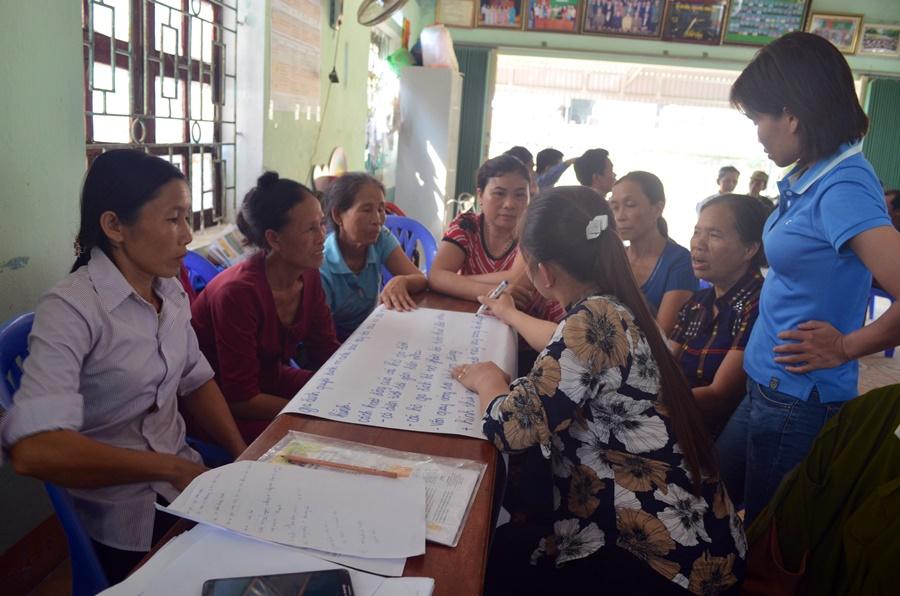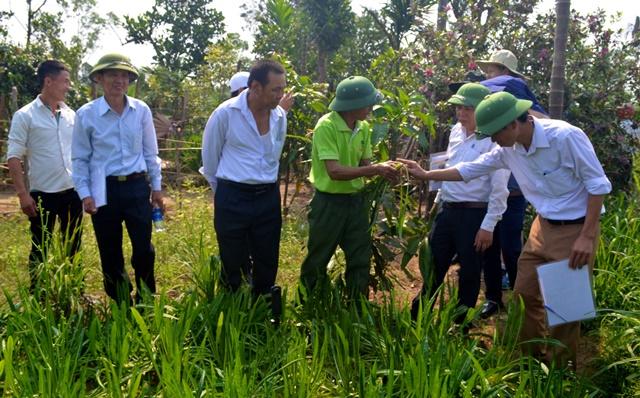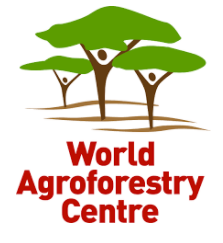Sharing the Knowledge From Mỹ Lợi Climate-smart Village in Việt Nam
The adoption of climate-smart agriculture in Việt Nam is underway through knowledge-sharing events.
Farmers, agricultural extension officers and local leaders from Quảng Bình Province, Việt Nam came to Mỹ Lợi Village to learn about climate-smart agriculture during a one-day roving workshop, 23 April. They will share the knowledge they gained with other extension officers and farmers in the province to encourage wider adoption of climate-smart agriculture. Mỹ Lợi is one of three villages in the country taking part in a project of the CGIAR Research Program on Climate Change, Agriculture and Food Security, managed by the World Agroforestry Centre (ICRAF) in Việt Nam.
The 30 visitors were involved with two projects: Food Start+, funded by Centro Internacional de Agricultura Tropical, and the Sustainable Rural Development Project, funded by the International Fund for Agricultural Development, in Quảng Bình Province.
Mỹ Lợi farmers demonstrated the climate-smart techniques they had learned and explained the advantages. The techniques included intercropping annual crops between trees, planting their homegardens with a wider range of trees and crops, establishing an organic and diversified vegetableschool garden, using agricultural waste and vermiculture for compost and animal feed, producing environmentally friendly bio-pesticides, and installing a mini-metrological measurement station for more accurate weather forecasts and agricultural advisory notes.
The diversified systems of crops and trees in homegardens and agroforests generated a lot of interest among the visitors.
“Agroforestry, combining annual crops and fruit trees, could really be one of the climate-smart agricultural options for improving homegardens in Quảng Bình, providing both short– and long–term benefits to farmers and reducing the risks from drought,” said one farmer from Quảng Bình.
With agriculture in both provinces being exposed to extreme events, farmers in Mỹ Lợishared how the mixed cropping improved resilience to extreme weather events andprovided more stable income over both shorter and longer terms.
“Some areas in Tuyên Hóa and Qua͐ng Trạch districts of Quảng Bình have similar climatic and soil conditions to MỹLợi,” said Le Thi Hang, a Food Start+ staff member. “However, many farmers practice monocultures of annual crops, which are more sensitive to drought or other extreme weather events. Here, Mỹ Lợifarmers plant multiple crops and trees on the same unit of land, producing diversified products and reducing risks of losing all products at once when something happens. This is interesting and farmers from Quảng Bình should learn and apply in their villages.”
Techniques to mitigate methane emissions from livestock production and to increase the efficiency of farmers’ use of resources were also introduced. The visitors were shown how to use effective microorganisms in making compost from agricultural residues, such as livestock manure and crop stems and leaves.
“We learned that producing homemade compost from agricultural waste can help reduce the need forchemical fertilizers and pesticides, reduce waste and help farmers save money,” noted Phan Van Ly, an extension officer from Qua͐ng Trạch. “We will invite Mỹ Lợi farmers to our district to provide trainingadvice for compost production.”
The visitors were also impressed with a vermicultural system in which the cultivation of worms produced a high-quality organic fertilizer and feed for catfish, which were cultivated in a nearby pond, chicken and ducks.
The day was successful in many ways, not least of which was that exchanges of technical informationand training between Mỹ Lợi and Quảng Bình farmers have now been incorporated into the action plans of Food Start+ and the Sustainable Rural Development Project.
The visit was organized by ICRAF to complement initiatives to expand the scale of climate-smart agriculturalpractices in the country.
Climate-smart villages are part of the CGIAR Research Program on Climate Change, Agriculture and Food Security. The project launched in 2011 with 15 villages in West and East Africa and South Asia. Additional villages were added in Latin America and Southeast Asia. ICRAF leads the Mỹ Lợi project, which is one out of three climate-smart villages in Viet Nam. All the villages worldwide are in high-risk areas for experiencing severe effects of a changing climate. Various interventions are deployed to help farmers become more resilient and ensure a secure food supply with the intention of increasing wider adoption of climate-smart agricultural practices.



